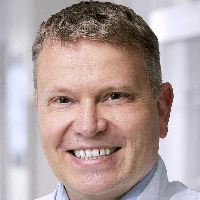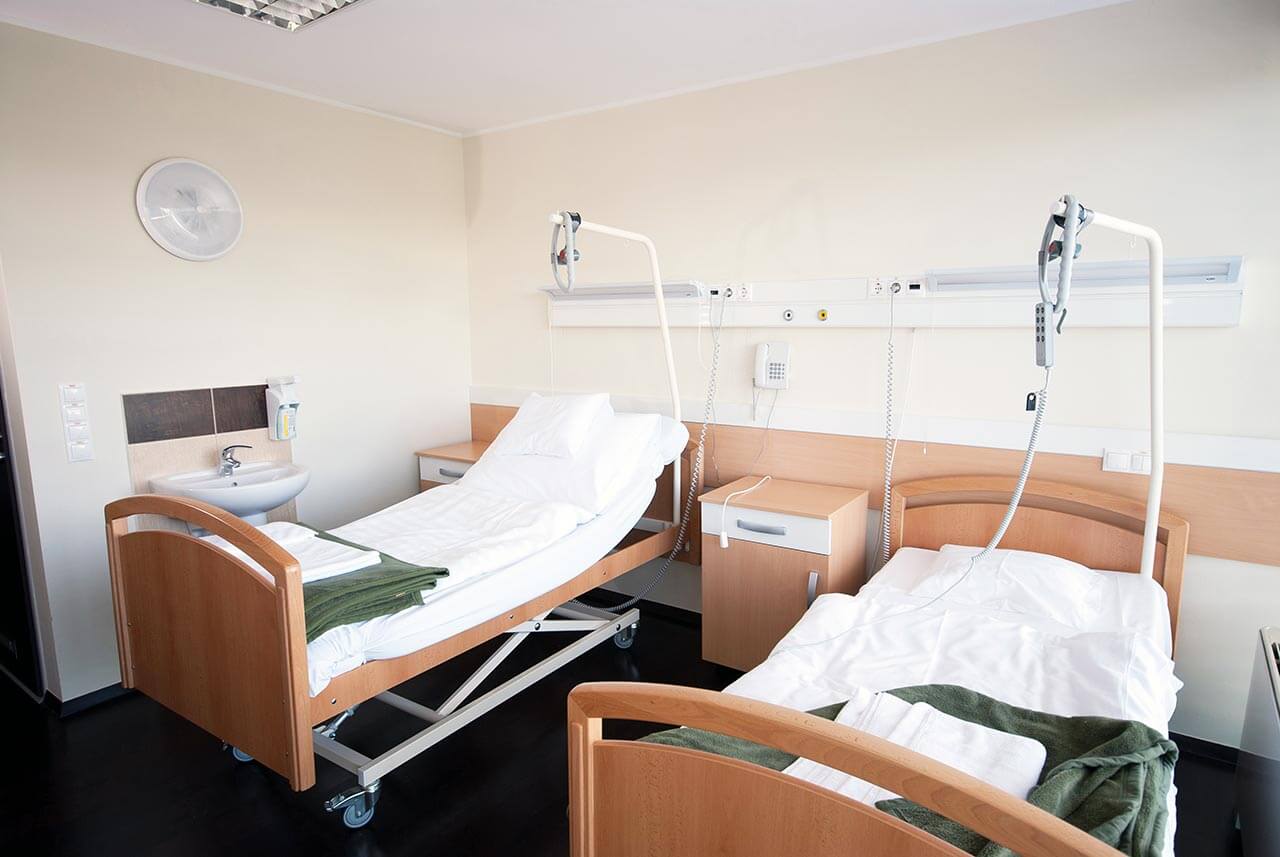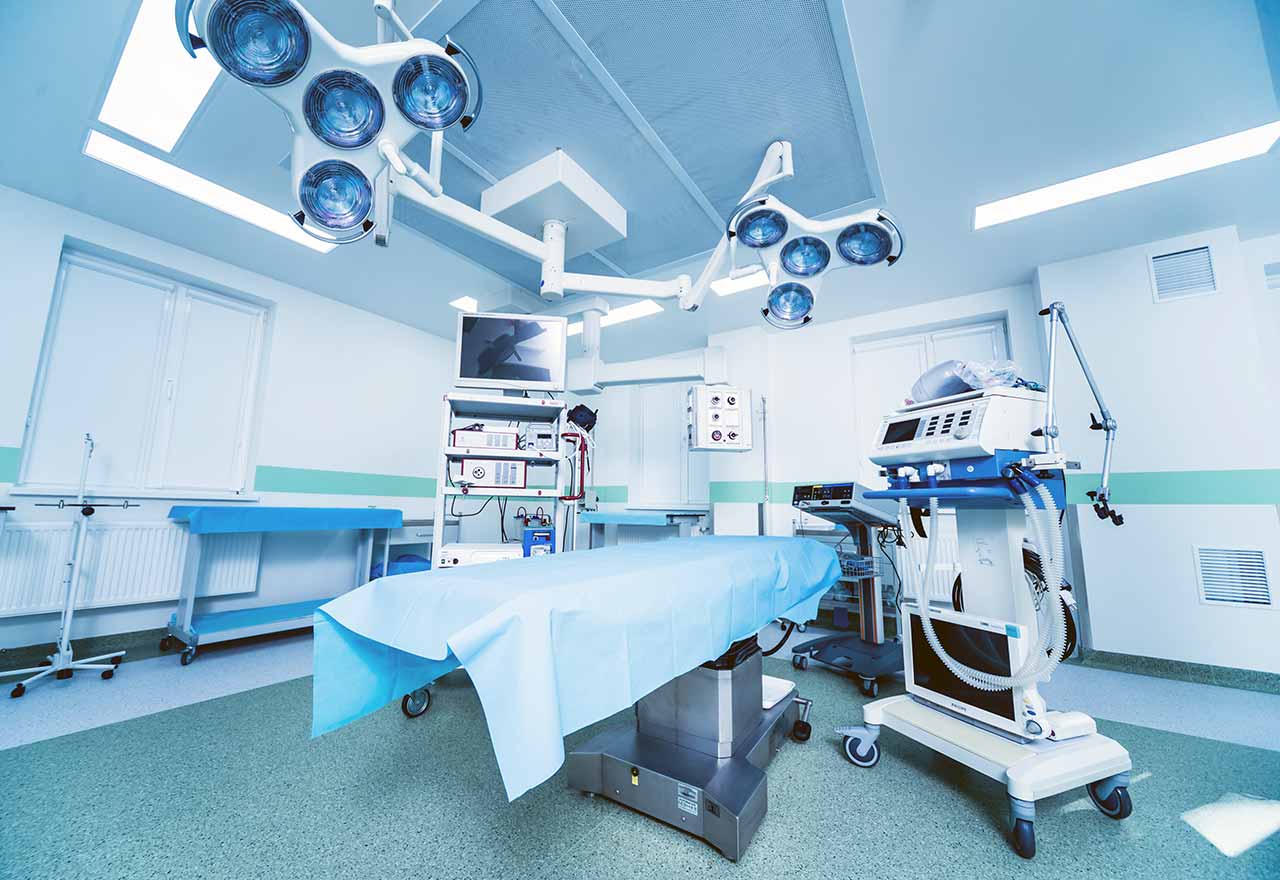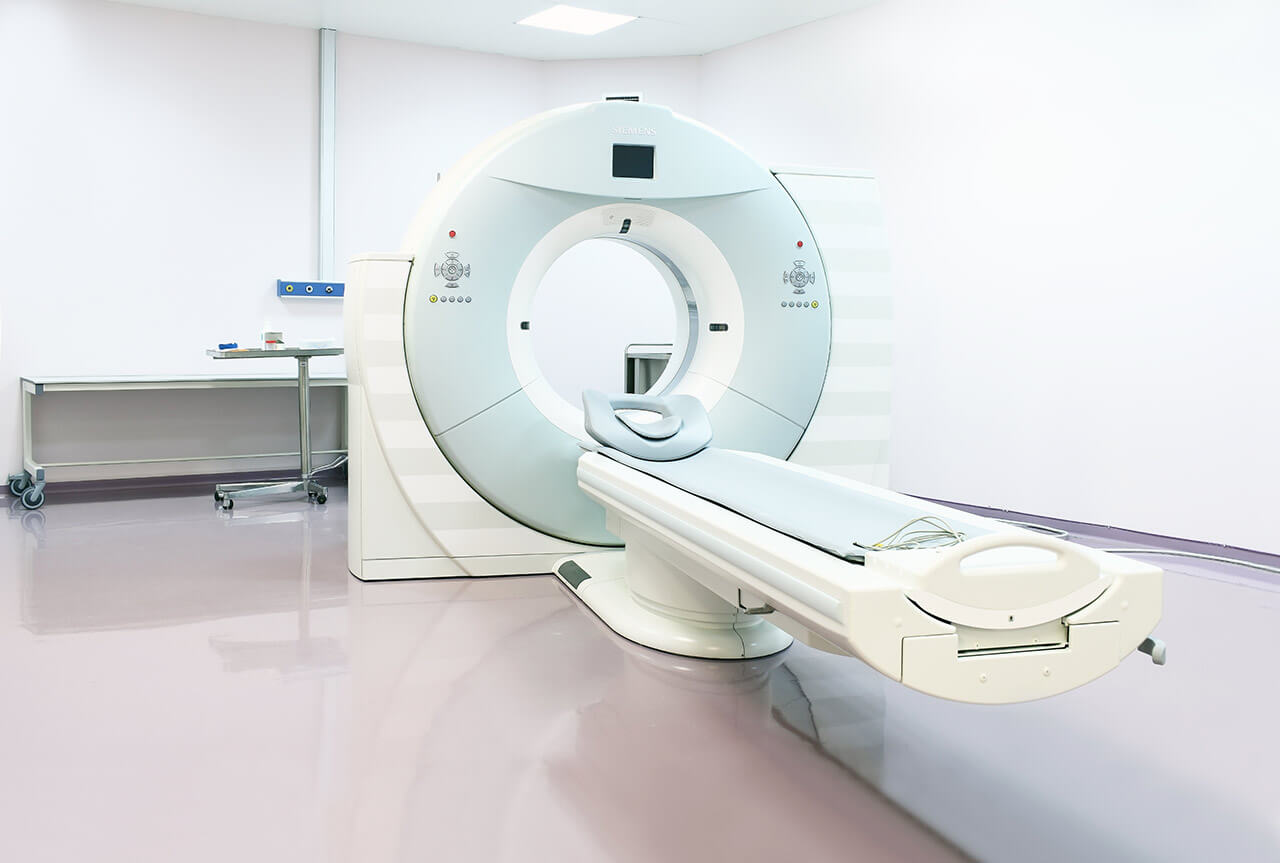
About the Department of Cardiac Surgery at HELIOS University Hospital Wuppertal
The Department of Cardiac Surgery at the HELIOS University Hospital Wuppertal offers the full range of innovative surgical techniques for the treatment of cardiovascular diseases, with the exception of heart transplantation. The priority focuses of the department's clinical activities include surgery for heart valve pathologies, coronary artery bypass grafting, artificial heart implantation for heart failure treatment, pacemaker and defibrillator implantation for cardiac arrhythmia treatment, as well as surgical procedures on the thoracic aorta. The department's high-tech operating rooms have state-of-the-art equipment, due to which most surgical interventions are performed using sparing minimally invasive techniques, without connecting the patient to a heart-lung machine. Minimally traumatic operations allow the specialists of the medical facility not to open the thorax, which reduces the risks and shortens the period of postoperative recovery. Cardiac surgeons cooperate closely with cardiologists and anesthesiologists, so patients benefit from comprehensive medical care. In the course of the therapeutic process, the individual needs and wishes of the patient are necessarily taken into account, on the basis of which the optimal type of surgical intervention is selected.
The department is headed by Prof. Dr. med. David Holzhey. The doctor's primary focus is on minimally invasive treatment of heart valve pathologies. The cardiac surgeon has performed thousands of successful operations, which gave a chance for a full life to patients with severe cardiac pathologies. Prof. Holzhey and his team make every effort to provide the patients with high-quality treatment in a pleasant and comfortable environment.
With more than 1,400 heart surgeries annually, the department ranks among the largest German Heart Surgery Centers. The medical facility has well-equipped diagnostic rooms, four conventional operating rooms and one hybrid operating room designed for performing modern operations combining open surgery with minimally invasive techniques in cooperation with the Department of Cardiology.
The team of the department's cardiac surgeons admits a large number of patients with heart valve pathologies. Of particular interest are surgical interventions for mitral, aortic and tricuspid valve stenosis and insufficiency. Whenever possible, preference is given to reconstructive surgery, and replacement of the patient's own heart valve with a mechanical or biological prosthesis is considered only in complex clinical cases when, according to the results of a preliminary examination, doctors believe that reconstructive intervention will not give a long-term result. A huge advantage for the department's patients is the exceptional competence of specialists in the field of sparing minimally invasive interventions for heart valve reconstruction and replacement. Such operations are performed through several incisions in the thoracic wall between the ribs, through which special instruments with a camera are inserted to transmit images of the surgical field to a large screen. Thus, the doctor can see all anatomical structures in multiple zooms and perform the necessary therapeutic manipulations using surgical instruments. Minimally invasive surgery eliminates the risk of severe postoperative complications, significantly reduces postoperative recovery, and also provides an excellent aesthetic result (scars on the thorax are practically invisible). In addition, such surgical interventions can be performed on high-risk patients with severe comorbidities.
The department's specialists are rightfully proud of their unique experience in the field of minimally invasive direct coronary artery bypass grafting for coronary artery stenosis – many heart surgery clinics still perform this type of operation only using open surgical techniques that require thoracotomy. Minimally invasive direct coronary artery bypass grafting is indicated for patients with coronary artery stenosis or obstruction on the anterior and lateral walls of the heart. An approximately 5 cm long incision is made in the left side of the thorax, and access to the heart is provided through the left fourth intercostal space. The department also successfully uses another modern modification of coronary artery bypass grafting, which does not require the use of a heart-lung machine. With appropriate clinical indications, the department's cardiac surgeons also perform the classical version of the operation with thoracotomy and using a heart-lung machine. In addition, the specialists have the necessary professional skills to perform revision coronary artery bypass grafting in patients with recurrent coronary artery stenosis or obstruction. Revision interventions are highly complex and time consuming. Nevertheless, the department's cardiac surgeons successfully cope with them and often perform revision coronary artery bypass grafting on the beating heart.
The department's surgical options also include operations for the implantation of mechanical circulatory support systems. This type of treatment is indicated for patients with heart failure. The specialists of the medical facility perform the implantation of a ventricular assist device (VAD) and a total artificial heart (TAH). The last type of prosthesis is rarely used. The implantation of the total artificial heart (TAH) involves removing the patient's heart and implanting two special mechanical pumps that act as the heart. Mechanical pumps replace the heart chambers and thereby support the pulmonary and systemic circulation. The ventricular assist device (VAD) implantation is a more common treatment option. During the surgery, a special pump is placed in the right or left ventricle that maintains the normal heart functioning. The VAD system is often implanted in patients who are awaiting heart transplantation, or this treatment option becomes an alternative to transplantation when it is not possible. In some cases, the ventricular assist device helps the patient to normalize heart function and is then removed.
The department's key clinical focuses include:
- Minimally invasive interventions on the heart and heart valves
- Interventions on the aortic, mitral and tricuspid valves (including transcatheter aortic valve implantation, which cardiac surgeons perform in cooperation with cardiologists)
- Minimally invasive direct coronary artery bypass (MIDCAB)
- Hybrid myocardial revascularization: minimally invasive direct coronary artery bypass grafting with percutaneous coronary angioplasty and stent implantation (performed in collaboration with cardiologists)
- Minimally invasive procedures, including hybrid surgery, on the thoracic aorta for aneurysms and dissection
- Minimally invasive interventions for heart tumor removal (for example, cardiac myxoma)
- Coronary artery bypass grafting
- Classical open coronary artery bypass grafting
- Off-pump coronary artery bypass grafting
- Revision coronary artery bypass grafting for recurrent coronary artery stenosis and obstruction
- Surgery for cardiac arrhythmias
- Pacemaker and defibrillator implantation surgery (in cooperation with cardiologists), as well as pacemaker removal using laser techniques
- Radiofrequency ablation and cryoablation for atrial fibrillation
- Surgery (open) for thoracic aortic aneurysms and dissection
- Surgery for artificial heart implantation
- Ventricular assist device (VAD) implantation
- Total artificial heart (TAH) implantation
- Surgery for heart tumor resection (for example, cardiac myxoma)
- Other minimally invasive and open heart procedures
Curriculum vitae
Positions
- Since 2021 Head Physician of the Department of Cardiac Surgery at the HELIOS University Hospital Wuppertal.
- Deputy Head of the Department of Cardiac Surgery at the Heart Center Leipzig.
Research Career
- 2020 Endowed Professorship (focus: structural heart disease), University of Leipzig.
- 2018 Extraordinary Professorship for Cardiac Surgery, University of Leipzig.
- 2012 Habilitation, University of Leipzig. Subject: "Processes of studying and improving the quality of cardiac surgery with a special focus on minimally invasive interventions".
- 2004 Graduation thesis defence with honors, University of Leipzig. Subject: "Telemanipulators in cardiac surgery – experimental research on manual and telemanipulative control and target movements on a moving model".
Research and Clinical Interests
- Introduction into clinical practice of innovative treatments for structural heart valve disease, in particular, the heart valve implantation and reconstruction using catheter-based techniques.
- Minimally invasive coronary artery bypass grafting and other similar interventions on the heart.
- Functional imaging tests in the field of cardiac surgery: 4D ultrasound, 4D CT, MRI.
Photoof the doctor: (c) Helios Universitätsklinikum Wuppertal




